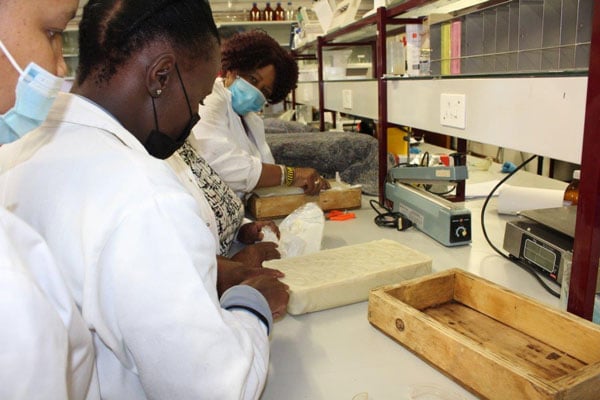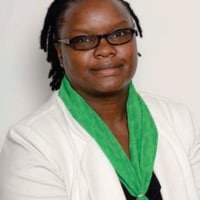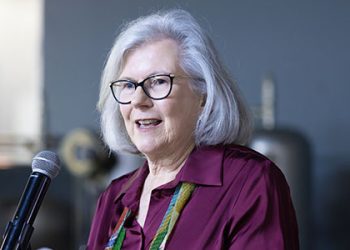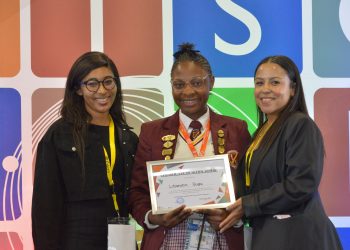The Central University of Technology (CUT)’s Centre for Applied Food Security and – Biotechnology (CAFSaB) recently hosted a workshop to empower traditional healers from across the Free State province with practical skills on how to make soap. The workshop was made possible courtesy of Dr Idah Manduna, a senior researcher in health sciences, who was awarded the Indigenous Systems Grant. The workshops also form part of the National Research Fund’s flagship project called ‘eco-store model’.
Value-added products
The soap-making workshops are also aimed to introduce the community – including the traditional healers sector – to the development of value-added products using their knowledge of medicinal plants and therapeutic essential oils. Traditional healers are custodians of traditional African culture, customs and spirituality and experts believe their vast indigenous knowledge should be incorporated into the country’s healthcare systems.

Safety measures
Ntshiuoa Kobo is one of the trainers who took the traditional healers through all key safety aspects as well as equipment required to make soap. Kobo comes from Tweespruit, a farm where she makes her soaps in a designated workspace. She then proceeded to provide lessons on the theory behind soap making. She emphasised the importance of taking into account that the ingredients required to make soap are harsh and can cause harm if proper safety regulations are not adhered to.
She said care should be exercised even when one works in a well-equipped science laboratory or a designated working area at home. Added Kobo: “as much as making soap can be fun, things can turn ugly very quickly. The last thing we want to experience are injuries from explosions, which is why following the basic safety rules is essential”.
Eye-opening
One of the participants, Mmamoya Rahloua, said the training session was insightful. She said not only have they learned how to make soap but they were also taught how they can further experiment with traditional herbs and medicine to provide their clients with a variety of products. Most traditional herbs are known to contain important life enhancing medicinal properties.

Practical sessions
The key component of the workshop was its focus on the practical session where participants had the opportunity to put their newly taught theory to practice. For instance, participants had to demonstrate how they could source quality ingredients to ensure their product is up to standard. They also learned a range of marketing techniques and skills to make sure their products do well in the market.
Infusing traditional knowledge
Said Kobo: “We are also teaching the traditional healers various soap-making techniques that they can then experiment with once they have the basics covered. This would include experimenting with essential oils, making soap using different oils and fats, as well as infusing their knowledge of traditional herbs to make their soaps more unique and appealing to consumers.”
She said these skills will also enable the women to expand their soap making businesses as well as explore other potentially lucrative sectors. She urged the participants to take all the knowledge they have acquired and share it with others, saying this will also help increase the skill base across the communities.







